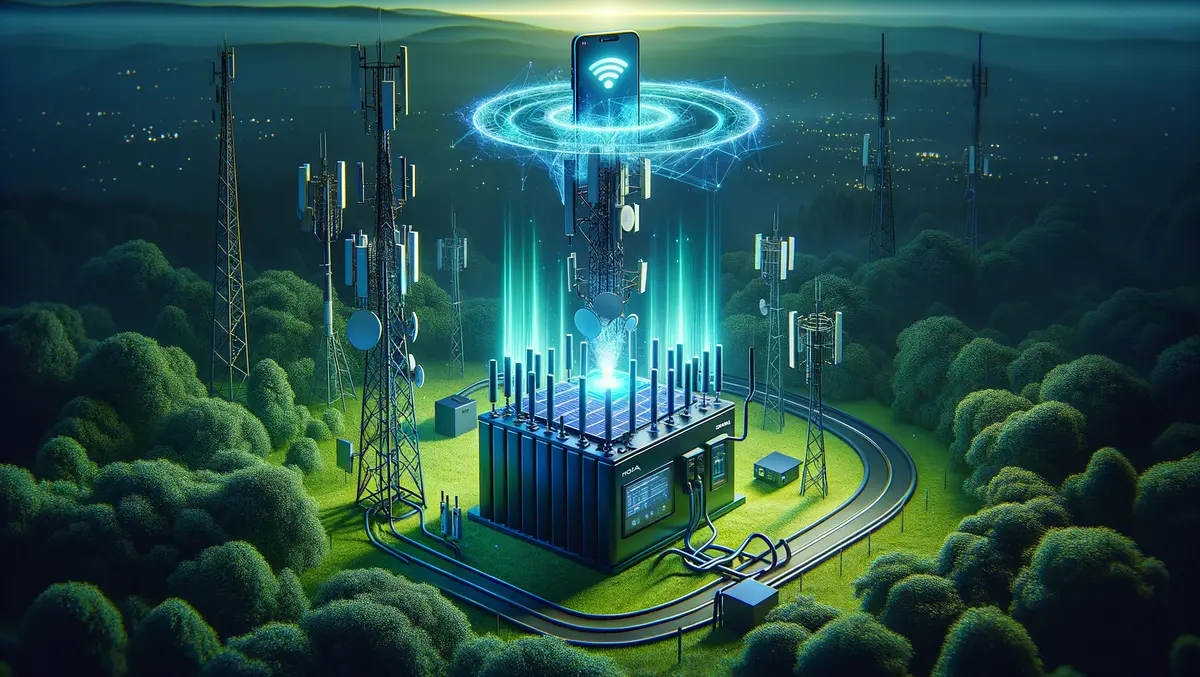
Nokia unveils software to monetise backup batteries
Nokia has announced the launch of the Nokia Virtual Power Plant (VPP) Controller Software, an end-to-end platform that assists mobile operators in capitalising on the existing backup batteries at base station sites. Upon shifting from grid power to backup batteries, operators can effectively reduce their energy costs in electricity spot markets, produce revenues in grid frequency balancing markets, and decrease their carbon emissions.
The VPP Controller Software from Nokia, a unique near-real-time software, supports the monetization of existing backup batteries by seamlessly transitioning from grid power. Not only does it lower energy costs in electricity spot markets and generate revenues in grid frequency balancing markets, but it also helps operators reduce their carbon emissions. Having successfully completed several trials, Nokia is looking to make this solution available later this year as part of its on-going commitment to ensure its energy-efficient solutions reduce the energy consumption, carbon emissions, and associated costs of mobile networks.
The VPP software from Nokia is designed to stabilize the electricity grid and repurpose base station backup batteries that often lay idle due to infrequent power cuts. Most countries have a transmission system operator that coordinates the electricity grid and regulates the power reserve markets. Operators can bid to provide power in these markets, enabling them to run their base stations using backup batteries and provide energy to the market, rather than using grid power. This effectively turns their backup battery systems into an investment with steady financial returns.
The Nokia VPP Controller Software also ensures the safe usage of batteries in the power reserve marketplace and estimates how much extra backup battery capacity is readily available based on power-consumption profiles for each power station. Using machine learning algorithms, the software smartly creates offers based on actual and predicted power consumption and the related extra backup power capacity. Nokia's solution also includes the auction bidding process in the power reserve market, making it easy for mobile operators to participate, providing a fast response to offload from the grid and monetise the batteries through near-real-time processing servers and Nokia's power system.
As part of its commitment to extreme energy efficiency, Nokia has also introduced several product enhancements. This includes an extreme deep sleep cell-switch-off mode, which, embedded in Nokia's AirScale Habrok Massive MIMO radio units, decreases energy consumption by up to 97% when compared to an active cell without traffic. Nokia has also unveiled a new Liquid Cooled baseband hotel site solution, enabling up to 90% energy savings in baseband hotel cooling systems compared to active air cooling, leading to an up to 80% reduction in carbon emissions.
Nokia's President of Mobile Networks, Tommi Uitto, stated, "Nokia's Virtual Power Plant is an incredible innovation that will help our customers monetise the energy stored in their backup batteries while also reducing carbon emissions. We are committed to continuously maximising the energy efficiency of our technology portfolio."
At the upcoming Mobile World Congress 2024, Nokia is set to showcase its radio leadership with improvements to its comprehensive AirScale product portfolio, including a range of energy-efficient solutions. Nokia's commitment to sustainability is expressed through its goals to reduce its environmental impact, aid its customers in doing the same, and maintain transparency through the regular publication of its sustainability reports.


